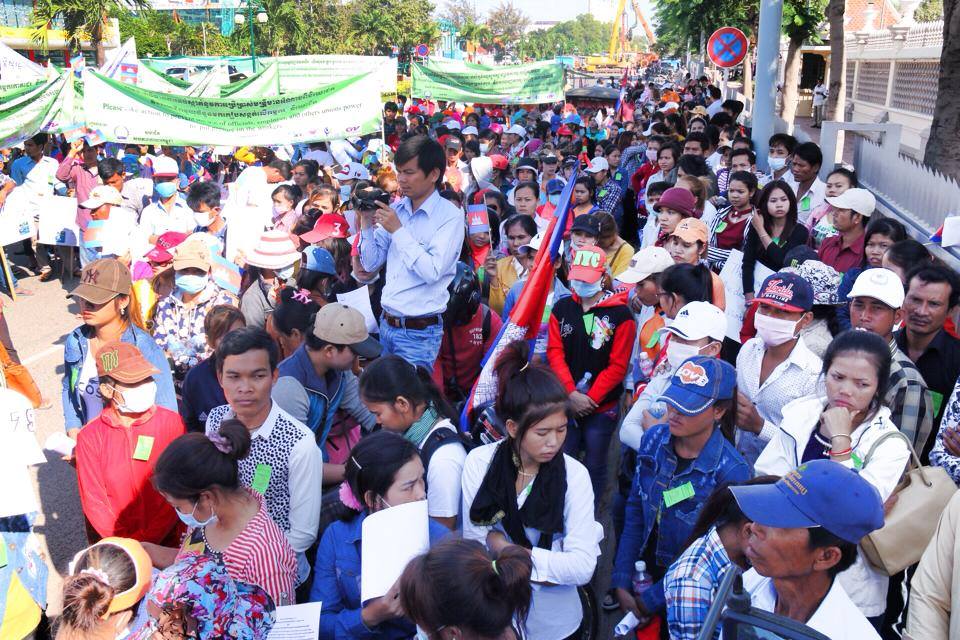WELCOME TO THE ARCHIVE (1994-2014) OF THE MAQUILA SOLIDARITY NETWORK. For current information on our ongoing work on the living wage, women's labour rights, freedom of association, corporate accountability and Bangladesh fire and safety, please visit our new website, launched in October, 2015: www.maquilasolidarity.org
December 19, 2014

Cambodian garment workers rally for increased minimum wage. Photo: AFL-CIO Solidarity Center in Cambodia
In response to increased pressure from Cambodian independent unions, their international supporters, and even some major apparel brands, on November 12, the Cambodian government announced it will be raising the minimum wage for garment workers from US$100 to $128 a month on January 1, 2015.
However, the new minimum wage, plus $17 in assorted bonuses, does not begin to meet the basic needs of workers and their families and is well below what was called for by all the country's independent unions.
The new minimum wage is only $5 higher than the $123 per month recommended by the tripartite Labour Advisory Committee, which includes representatives of the government, the apparel manufacturers, and government-affiliated and independent unions, but much less than the $177 campaign demand of the independent unions or the $140 proposed by the unions in the tripartite negotiations.
Ath Thon, president of the Coalition of Cambodian Apparel Workers' Democratic Union, called the new minimum wage unacceptable and dismissed the $5 added as "just an attempt to calm the workers down."
Despite massive government repression following a national garment workers' strike in January 2014, Cambodian garment workers have continued to stage creative protests and job actions in support of a minimum wage that meets their basic needs.
Meanwhile, the Global Unions, and labour rights groups around the world, including Canadian unions and MSN, have been pressuring international brands to support the call for an increased minimum wage and commit to paying higher prices to their suppliers in order to make payment of a living wage possible.
According to David Welsh of the AFL-CIO-affiliated Solidarity Center in Cambodia, "the announced minimum wage increase represents a missed opportunity by the Cambodian government." He points out that for the first time European and US brands had publicly committed to adjusting their pricing schemes to ensure that their Cambodian suppliers would have the flexibility to absorb a significant increase resulting in a living wage. "In the end, the $128 is only eight dollars higher than the Government's own official poverty line of $120 a month," says Welsh.
Labour Behind the Label in the UK has produced a video documenting the reaction of Cambodian garment workers to the new minimum wage.